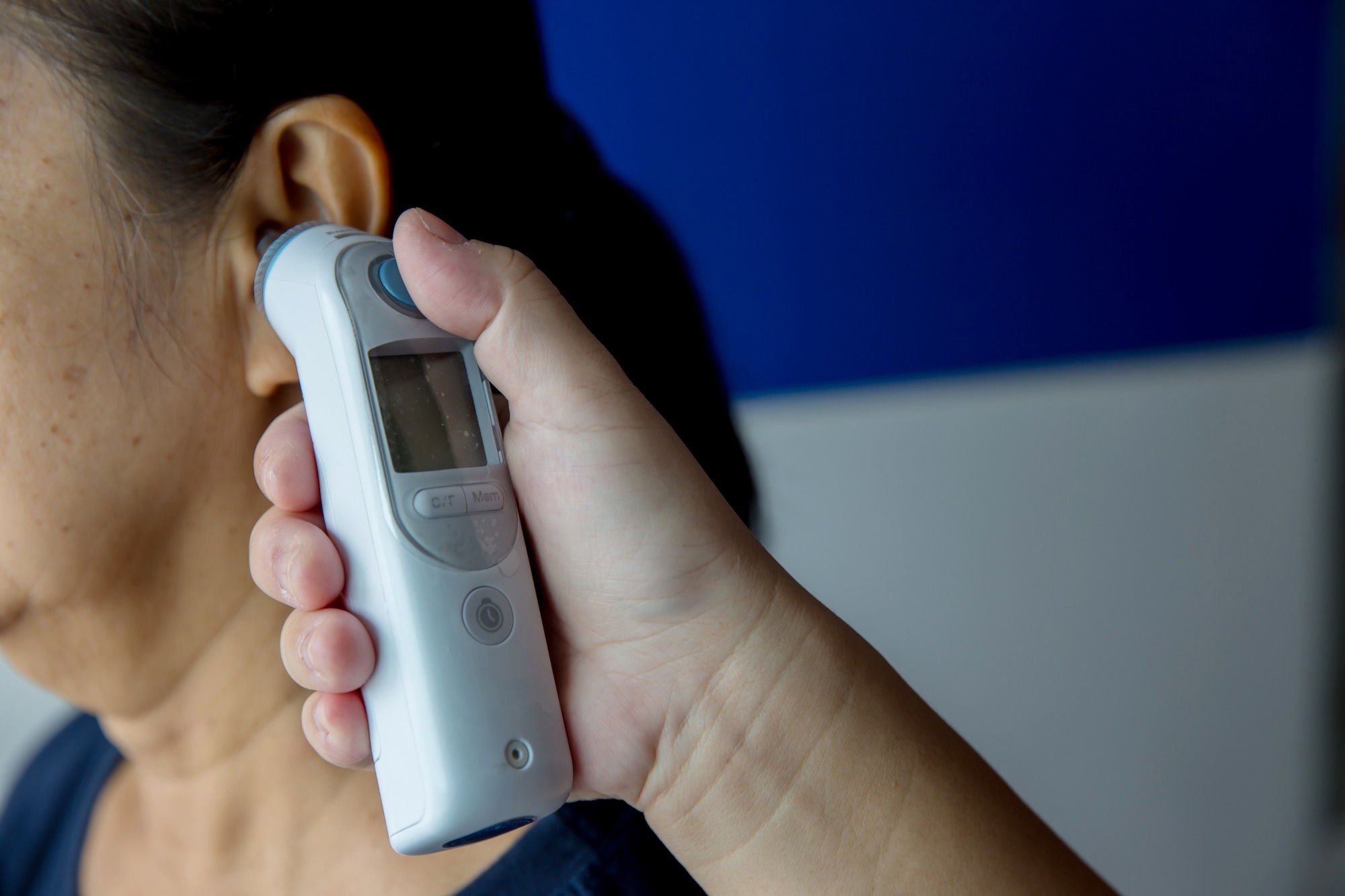Measuring temperature is fundamental to medical diagnostics, offering swift insights into a patient's health by indicating potential infections, inflammations, or underlying conditions.
Among the numerous devices available for this purpose, tympanic ear thermometers have become a prominent tool, especially in pediatric care. However, the reliability of these devices begs investigation. This article delves into the science and practicality of tympanic ear thermometers.

Image Credit: kckate16/Shutterstock.com
Understanding Tympanic Ear Thermometers
Digital ear thermometers, informally known as tympanic ear thermometers, employ an infrared sensor to measure the temperature of the eardrum.
Their design offers several advantages: nonintrusive, sanitary, and quick results. These attributes make them especially suitable for children who may not always cooperate with alternative temperature-taking methods.
Accuracy: A Closer Look
The precision of tympanic ear thermometers has been the subject of extensive research. When used accurately, these devices can provide precise results. A comprehensive study comparing tympanic thermometry with axillary mercury glass thermometry established that the former was equally dependable and precise.
A systematic review and meta-analysis reinforced this conclusion, affirming that tympanic thermometry offers high diagnostic accuracy, rendering it an excellent choice for screening temperatures in pediatric groups.
Comparative Analysis with Other Methods
Although tympanic ear thermometers undeniably have their uses, it is essential to consider their readings relative to other methods of temperature measurement. Typically, ear (tympanic) temperature readings are approximately 0.3 °C (0.5 °F) to 0.6 °C (1 °F) higher than oral temperatures.
While tympanic thermometers such as oral or rectal devices may not match the accuracy of contact thermometers, they remain a valuable tool for fever screening in various situations.
Ensuring Proper Usage for Optimal Results
The effectiveness of tympanic ear thermometers depends on their proper use. Precise readings are ensured by diligently following the manufacturer's instructions.
These guidelines often include information on the device's operation and how its results compare with those obtained through alternative temperature measurement techniques.
Specialty Items and Advanced Thermometry
For those in the field or individuals interested in exploring advanced temperature measurement tools, specialized items can provide enhanced features and functions. Dexter Research, a leader in temperature measurement, offers a range of specialized items tailored to specific requirements.
To explore these state-of-the-art tools and understand how they enhance temperature measurement practices, visit the specialized items page.
At Dexter Research, the importance of grasping the subtleties of temperature measurement for optimal system design is emphasized. Tympanic ear thermometers, with their numerous advantages, have solidified their status as dependable tools in medical diagnostics.
While they may not always match the precision of certain contact thermometers, their ease of use, swift results, and nonintrusive nature render them indispensable in numerous settings.
As with all medical devices, obtaining accurate results lies in ensuring proper usage. Users are encouraged to stay well-informed, adhere to guidelines, and consistently seek advancements in thermometry.
References
Gasim GI, Musa IR, Abdien MT, Adam I. Accuracy of tympanic temperature measurement using an infrared tympanic membrane thermometer. BMC Res Notes. 2013 May 10;6:194. doi: 10.1186/1756-0500-6-194. PMID: 23663659; PMCID: PMC3658932.
Shi, D., Zhang, LY. & Li, HX. Diagnostic test accuracy of new generation tympanic thermometry in children under different cutoffs: a systematic review and meta-analysis. BMC Pediatr 20, 210 (2020). https://doi.org/10.1186/s12887-020-02097-7

This information has been sourced, reviewed and adapted from materials provided by Dexter Research Center, Inc.
For more information on this source, please visit Dexter Research Center, Inc.